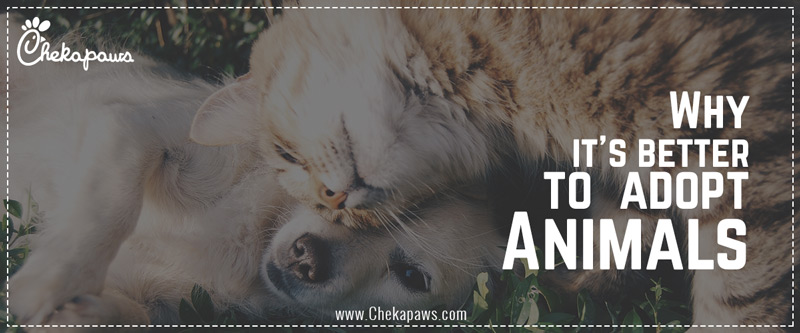If you’ve ever held a rescued animal in your arms, you know there’s something magical about that moment. It’s not just the soft fur or the gentle heartbeat against your chest — it’s the realization that you’re both getting a second chance.
Honestly, I still remember walking into my first animal shelter years ago, thinking I’d just “look around.” The symphony of barks, meows, and hopeful eyes changed everything. That day, I understood what millions of pet owners across the world have discovered: adopting a shelter pet doesn’t just save their life, it transforms yours in ways you never imagined.
Right now, as you’re reading this, approximately 2.8 million cats and dogs are sitting in shelters across America, each one waiting for someone like you to walk through those doors. They’re not broken or damaged goods — they’re simply animals who, through no fault of their own, ended up needing a fresh start. The truth is, most of these incredible creatures have so much love to give, and they’re just waiting for the right person to share it with.
This isn’t just another post about pet adoption. It’s about understanding how bringing home a shelter pet creates a ripple effect of healing, joy, and unconditional love that extends far beyond what you might expect. Whether you’re considering your first pet or adding another furry family member, the journey from shelter to home is one of the most rewarding experiences life has to offer.
Thinking of adding a pet to your family. Then go for adoption because number of euthanized animals could be reduced by adopting a shelter animal or rescue pet. When you adopt you save a loving animal by making them part of your family.
Table of Contents
The Reality of Shelters
Walking into an animal shelter for the first time can be overwhelming. The sound hits you first — a chorus of barks echoing off concrete walls, punctuated by the occasional meow from the cat rooms.
The smell of disinfectant mingles with that unmistakable “animal” scent, and your heart immediately starts racing because you know that behind every kennel door is a story waiting to unfold.
I’ll never forget visiting the local SPCA on a rainy Tuesday afternoon. The volunteer who greeted me had that weathered look of someone who’d seen too many goodbyes, but her eyes lit up when she talked about the animals.
“Each one of these babies has their own personality,” she said, leading me past rows of kennels. “That golden retriever mix? He’s been here four months. Sweetest boy you’ll ever meet, but people keep passing him by because he’s seven years old.”
The reality is that today’s shelters are dealing with unprecedented challenges. With 607,000 animals euthanized in 2024 alone, and 5.8 million animals entering shelters each year, these facilities are operating at or above capacity.
The economic pressures families face — rising veterinary costs, housing insecurity, and inflation — have led to more surrenders than many shelters can handle. It’s heart-breaking, but it’s also exactly why each adoption matters so much.
But here’s what might surprise you: shelters today aren’t the grim, depressing places many people imagine. Modern animal welfare organizations work incredibly hard to create environments where animals can thrive while waiting for homes.
They provide medical care, behavioural training, socialization programs, and enrichment activities. Many shelters have comfortable play areas, skilled veterinary staff, and volunteers who spend countless hours making sure each animal feels loved.
The staff and volunteers at these facilities are some of the most dedicated people you’ll ever meet. They know every animal’s story, their favourite treats, who likes belly rubs, and who needs a little extra patience. They celebrate every adoption like it’s their own family member finding happiness, because in many ways, that’s exactly what it is.
These topics may also interest you:
Why People Overlook Shelter Pets
The myths surrounding shelter pets are both persistent and heart-breaking. I’ve heard them all: “Shelter animals are damaged,” “They must have behavioural problems,” “You can’t find good breeds there,” “They’re all old and sick.” The truth is, these misconceptions keep loving families from finding their perfect companions and prevent deserving animals from finding homes.
One of the biggest myths is that shelter pets are somehow “broken.” In reality, most animals end up in shelters due to human circumstances, not animal problems. A family moves to an apartment that doesn’t allow pets. Someone develops allergies.
A job loss makes pet care unaffordable. A beloved elderly owner passes away. These situations have nothing to do with the animal’s quality or temperament — they’re simply life’s unexpected challenges.
I once met a beautiful Border Collie named Max at a shelter who’d been there for six months. His crime? Being “too energetic” for his previous family who worked long hours and lived in a small apartment.
Within a week of being adopted by an active retired couple, Max was thriving on daily hikes and learning agility training. The problem was never Max — it was simply a mismatch between his needs and his first family’s lifestyle.
Another persistent myth is that you can’t find purebred animals in shelters. The reality is stunning: approximately 25% of pets in shelters are purebreds. There are even breed-specific rescue organizations dedicated to rehoming everything from Golden Retrievers to Maine Coon cats. If you have your heart set on a particular breed, shelters and rescues are often the most ethical way to find your perfect match.
The misconception about age is equally unfounded. While shelters do house senior pets (who, by the way, make incredible companions), they also care for puppies, kittens, and young adults. Many animals arrive as babies when their mothers give birth in shelters, or when litters are surrendered by owners who couldn’t afford to spay their pets.
Perhaps the most damaging myth is that shelter animals are aggressive or have serious behavioural issues. The truth is that most behavioural problems seen in shelters are stress-related and temporary.
A dog who seems withdrawn in a noisy kennel environment often blossoms into a playful, affectionate companion once they’re in a calm home setting. Studies show that dogs display the highest prevalence of stress-related behaviours during their first days in shelters, but these behaviours typically improve as they adjust.
These topics may also interest you:
7 reasons why you should adopt a shelter dog or cat

These animals deserve a forever home
These homeless and abandoned animals also need love and care. They were treated wrongly,
And not given this right to happiness and by adopting them and giving some space in our homes we are giving them what they deserve. Usually, they end up in shelters because of bad luck. Perhaps the previous owners didn’t know what they were getting themselves into when they brought a particular pet home, or for some other reason were unable to take care of their pets.
You’ll find a permanent companion
Animals give us unconditional love and they have tendencies to cure us from sadness and depression. It is proven psychologically that animals can sense sadness and they are beneficial for us emotionally.
You don’t have to train them
No baby animal is born knowing where and when it’s appropriate to go to the bathroom they have to be taught. That takes time and can be a frustrating process. When we adopt a animal from shelter mostly are already litter-trained. So its easy for us to manage these pets as they are already trained. In any case, most shelters will be happy to steer you toward pets with good trained habits.
These topics may also interest you:
- 10 Surprising benefits of having a cat in your life
- Common health problems in cats and how to prevent them
- 10 Common Health Issues in Hamsters and How to Treat Them
Adopting a dog or cat is cheaper than buying one
Not to mention, adopting a dog is typically cheaper than purchasing one. Adopting fee is very less than buying a pet from a breeder. Those adoption fees typically include vaccinations, spaying or neutering, and necessary health tests, while dogs purchased from breeders may not.
Health concern regarding the pet
Weather you buy a pet from a breeder or adopt from shelter neutering and vaccinations are essential before the animal brought home. Vaccination is a must process for a pet weather you buy them or adopt. If you adopt a pet Shelters make it easier on owners by covering a large portion of the costs.
Setting a good example
Taking in an animal that needs a home sets a great example for your children, and teaches them important moral lessons. By adopting a pet you are making a change in the world. It’s a great way for children to see that they can make a difference in the world.
By adopting a pet you are saving life
Homeless animals are at serious risks in the streets. They can get hit by a car, be abused, even get set on fire. Shelters bring in these animals and invest a lot of time, money, and energy to help them recover from injuries and maltreatment they received on the streets. Adopting a pet can give them a chance to live a better life.
These topics may also interest you:
Emotional Benefits of Adopting
There’s something profoundly healing about rescued love. When you adopt a shelter pet, you’re not just gaining a companion — you’re entering into a relationship built on mutual rescue. They may be getting a home, but you’re getting something equally precious: a daily reminder of what unconditional love actually looks like.
The emotional benefits of pet ownership are well-documented, but there’s something extra special about the bond that forms with a rescued animal. Research shows that 83% of pet owners report their pets have a positive impact on their mental wellbeing, but those who’ve adopted often describe an even deeper connection. It’s as if these animals somehow understand they’ve been given a second chance, and their gratitude is palpable.
Scientists have found that interacting with pets releases oxytocin — the same hormone associated with bonding between humans. This “love hormone” doesn’t just make us feel good; it actually reduces cortisol levels, lowers blood pressure, and helps regulate our stress response. When you’re petting your adopted dog after a difficult day at work, you’re literally changing your body’s chemistry in ways that promote healing and wellbeing.
But the emotional benefits go far deeper than biochemistry. Shelter pets seem to possess an innate understanding of what it means to be vulnerable, and they often become incredibly attuned to their owners’ emotional needs.
I’ve lost count of how many adopters have told me stories about their rescue dogs sensing when they were sad, their cats providing comfort during illness, or their pets somehow knowing exactly when a gentle nuzzle or playful distraction was needed.
The sense of purpose that comes with pet ownership is magnified when you know you’ve saved a life. Every morning when your adopted cat greets you with purrs, every evening when your rescue dog’s tail wags as you come through the door, you’re reminded that your choice to adopt made this joy possible. It’s a daily affirmation that your decisions matter and that love truly can transform lives.
For many people, especially those dealing with depression or anxiety, adopted pets provide structure and motivation when it’s needed most. They create routines that encourage self-care — you have to get up to feed them, you need to go outside for walks, you must engage with the world because another living being depends on you. This responsibility, rather than being a burden, becomes a lifeline that pulls you through difficult times.
These topics may also interest you:
- Why Dogs are Man’s Best Friend?
- What to Expect When You’re Expecting a New Puppy: A Guide for First-Time Owners
- How to Introduce Your Cat to Other Pets
How Adoption Changes a Pet’s Life
The transformation that occurs when a shelter animal finds their forever home is nothing short of miraculous. If you’ve ever seen before-and-after photos of rescue animals, you know what I’m talking about — but the real changes go far beyond physical appearance.
In shelters, even the best-run facilities, animals live in a state of constant uncertainty. The sounds, smells, and energy of institutional care create chronic stress that affects everything from sleep patterns to immune function.
Dogs may pace in their kennels, cats might hide in the back of their cages, and many animals shut down emotionally as a protective mechanism. This isn’t because they’re damaged — it’s because they’re responding normally to an abnormal situation.
The moment an animal crosses the threshold into their new home, the healing process begins. Within days, sometimes hours, you can see physical changes. Tense muscles relax. Eyes that were dull and fearful begin to sparkle with curiosity. Coats that were lacklustre start to shine as stress hormones decrease and proper nutrition takes effect.
But the emotional transformation is even more remarkable. Shelter animals often go through what behaviourists call a “decompression period” — typically lasting two weeks to two months — during which their true personalities emerge.
The timid dog who cowered in the corner of their kennel might reveal themselves to be a playful clown who loves fetch. The cat who seemed aloof and disinterested could turn out to be an affectionate lap cat who follows you from room to room.
Research tracking shelter dogs over their first six months in new homes reveals fascinating insights into this transformation. While some behaviour like separation anxiety actually improve over time as dogs gain confidence in their security, other natural behaviours like playfulness and curiosity increase as they feel safe enough to be themselves.
The data shows that 93% of adopters rate their dogs’ behaviour as excellent or good, even as the animals’ personalities fully emerge.
One of the most touching aspects of rescued animals is what many adopters describe as gratitude. While scientists debate whether animals can truly feel gratitude in the human sense, there’s no denying that rescued pets often display extraordinary loyalty and affection toward their adoptive families. They seem to understand, on some level, that they’ve been given a gift, and they respond with a devotion that can take your breath away.
The physical health improvements are equally dramatic. Shelter animals often arrive underweight, with dull coats, stress-related digestive issues, or minor health problems from life on the streets or in overcrowded conditions.
With proper nutrition, regular veterinary care, and the reduced stress of a loving home, these animals literally bloom. Their coats become glossy, their energy increases, and their overall vitality improves remarkedly.
These topics may also interest you:
- Why Hamsters Are The Best Small Pets For Kids
- The Benefits of Adopting an Older Dog – Give Them a Second Chance
- 10 Reasons Why Dogs Make the Best Pets – Adopt a Dog Today
How Adoption Changes Your Life
When people ask me about the benefits of adopting a pet, I sometimes struggle with where to begin. The changes are so profound and multifaceted that it’s hard to capture them all in words. But if I had to choose the most significant impact, it would be this: adopted pets teach you what it means to live in the moment and love without conditions.
The mental health benefits alone are staggering. Studies consistently show that pet owners experience lower rates of depression and anxiety. The simple act of petting an animal reduces stress hormones and releases endorphins — your body’s natural mood elevators. But beyond the biochemistry, there’s something about caring for a rescued animal that provides a sense of purpose and meaning that extends into every area of your life.
Your daily routine transforms in the most wonderful ways. Instead of hitting the snooze button, you’re motivated to get up because someone is excited to see you. Evening walks become opportunities for reflection and exercise rather than chores to endure. Weekend mornings turn into adventures — maybe a hike with your dog or a lazy Sunday afternoon reading while your cat purrs on your lap.
The social benefits are equally remarkable. Dog owners, in particular, find themselves part of an instant community. Regular walks create opportunities for conversations with neighbours. Dog parks become social hubs where friendships form over shared stories of muddy paws and chewed shoes. Even introverts find that their pets serve as natural conversation starters and social lubricants.
For families with children, the impact is profound and lasting. Kids who grow up with rescued pets learn empathy, responsibility, and compassion in ways that no amount of lecturing could achieve. They witness first-hand how kindness can transform lives, and they develop nurturing instincts that will serve them throughout their lives. Research shows that children with pets often have higher self-esteem and better social skills.
The physical health benefits are substantial too. Dog owners average more daily exercise than non-dog owners, leading to improved cardiovascular health, better weight management, and stronger bones and muscles. The regular walks, play sessions, and general activity that comes with pet ownership creates a lifestyle that naturally promotes physical fitness.
Perhaps most importantly, adopted pets teach us about resilience and healing. When you watch an animal who’s experienced neglect or abandonment learn to trust again, you gain profound insights into the power of patience, consistency, and unconditional love. These lessons inevitably spill over into your human relationships, making you a more empathetic partner, friend, and family member.
These topics may also interest you:
- How to protect pet dogs, cats and strays from heat wave
- 10 Tips for Traveling with Your Dog: Making Trips Hassle-Free
- How to Introduce a New Cat to Your Home
The Financial and Ethical Side of Adoption
Let’s talk about money for a moment, because the financial aspects of pet ownership are real considerations that responsible potential owners must address. The good news is that adoption is significantly more affordable than purchasing from breeders or pet stores, both in initial costs and long-term considerations.
Adoption fees typically range from $0 to $300, depending on the shelter and location and country. This might seem like a lot if you’re on a tight budget, but consider what’s included: vaccinations, spaying or neutering, microchipping, and often initial veterinary examinations.
If you were to purchase these services separately, you’d easily spend $300-500 or more. In contrast, buying from a breeder can cost anywhere from $500 to over $5,000, not including any of the medical care your new pet will need.
There’s also the long-term financial consideration. Mixed-breed animals, which make up the majority of shelter pets, often have fewer genetic health problems than purebreds. This can translate to lower veterinary costs over your pet’s lifetime. While purebred animals aren’t inherently unhealthy, many breeds are predisposed to specific genetic conditions that can be expensive to treat.
But the ethical considerations are perhaps even more compelling than the financial ones. Every time someone chooses adoption over purchasing, they’re taking a stand against puppy mills and unethical breeding operations.
The puppy mill industry is a heart-breaking reality — with an estimated 10,000 puppy mills operating in the United States alone, churning out 2.6 million puppies annually from facilities where mother dogs spend their lives in cramped cages with minimal veterinary care.
These commercial breeding operations prioritize profit over animal welfare. Female dogs are bred repeatedly until their bodies can no longer produce litters, at which point they’re often euthanized or abandoned. The puppies from these facilities frequently arrive at pet stores or in buyers’ homes with health problems, behavioural issues, and the trauma of early separation from their mothers.
When you adopt from a shelter, you’re not just refusing to support these cruel operations — you’re actively combating them. Every adoption reduces the demand for commercially bred puppies and creates space in shelters for another animal in need. You’re part of a solution that values life over profit and compassion over convenience.
The ripple effects extend beyond individual animals too. Communities with high adoption rates tend to have lower euthanasia rates, reduced stray populations, and better-funded animal welfare programs. Your adoption helps create a culture that values animal life and supports the infrastructure needed to care for vulnerable creatures.
These topics may also interest you:
- 10 Pet Animals For Emotional Support
- Types Of Pet Allergies and How to Treat Them
- Why I Started This Blog Page?
Preparing to Adopt
The decision to adopt shouldn’t be made impulsively, no matter how adorable that shelter puppy’s photos look online. Successful adoptions require preparation, honest self-assessment, and commitment to providing care for 10-20 years or more.
Start by researching shelters and rescue organizations in your area. Visit their websites, read reviews, and if possible, tour the facilities. Look for organizations that provide behavioural assessments, veterinary care, and post-adoption support.
The best shelters will be happy to answer questions about their animals’ histories, temperaments, and needs. They should also ask you plenty of questions — a good shelter wants to ensure their animals are going to appropriate homes.
Be honest about your lifestyle and what you can realistically provide. If you work 10-hour days, a high-energy puppy probably isn’t the right match. If you rent your home, make sure pets are allowed and understand any restrictions or additional deposits required. Consider your budget not just for adoption fees, but for ongoing costs like food, veterinary care, grooming, boarding, and emergency medical expenses.
Think about what type of pet fits your living situation and experience level. First-time pet owners might do better with an adult animal whose personality is already established, rather than a puppy whose needs and traits are still developing.
Consider the long-term commitment — that adorable kitten will hopefully be with you for 15-20 years, through job changes, moves, relationship changes, and life transitions Yet to come.
Prepare your home before bringing your new pet home. Remove hazards, secure loose items that might be chewed or knocked over, and create a safe space where your new companion can decompress during their adjustment period. Stock up on supplies: appropriate food, bowls, bedding, toys, and any pet-specific items they’ll need.
Most importantly, prepare emotionally for an adjustment period. Even the most well-adjusted shelter animal will need time to feel secure in their new environment. They may have accidents, exhibit stress behaviours, or seem withdrawn initially.
This is normal and temporary — with patience and consistency, almost all adopted pets settle beautifully into their new routines.
These topics may also interest you:
- 10 Ways to Get Involved with Pet Owners in Your City
- How to educate people and children about animal welfare
- What are the conditions needed to become a foster parent for cats and dogs?
The First Few Weeks After Adoption
The honeymoon period is real, and it works both ways. Your new pet might be on their best behaviour initially, or they might be stressed and exhibit behaviours that worry you. Either way, the first few weeks are about building trust, establishing routines, and allowing both of you to adjust to your new life together.
Don’t be surprised if your adopted pet seems different at home than they did at the shelter. The kennel environment is stressful and doesn’t allow animals to show their true personalities. That quiet dog might turn out to be quite playful, or the seemingly outgoing cat might need time to warm up to their new surroundings.
This adjustment period, sometimes called the “3-3-3 rule,” suggests that pets need about three days to decompress, three weeks to learn your routines, and three months to fully settle in.
Establish consistent routines as quickly as possible. Feed meals at the same times each day, take dogs out for walks on a regular schedule, and create predictable patterns that help your pet feel secure. Consistency is especially important for animals who may have experienced chaos or uncertainty before arriving at your home.
Be patient with house training, even if the shelter told you your pet was house-trained. The stress of a new environment can cause temporary regression in bathroom habits. Stick to positive reinforcement, clean accidents thoroughly with enzymatic cleaners, and remember that this phase will pass with time and consistency.
Watch for signs of stress or illness during this adjustment period. Changes in appetite, excessive hiding, destructive behaviour, or bathroom issues that persist beyond the first week might indicate that your pet needs additional support or veterinary attention. Don’t hesitate to contact the shelter or your veterinarian with concerns — they want your adoption to be successful.
Remember that building trust takes time, especially with animals who may have experienced trauma or multiple home changes. Some pets bond immediately, while others need weeks or months to fully open up. Be patient, consistent, and gentle.
Let them approach you rather than forcing interactions, and celebrate small victories like the first time they bring you a toy or curl up next to you on the couch.
These topics may also interest you:
- How to Cope with Losing Your Pet
- Indoor vs. Outdoor Cats Pros and Cons
- Senior Pet Care Tips. How to Keep Your Aging Pet Comfortable?
Long-Term Joys of Having a Rescue Pet
The real magic of pet adoption reveals itself over time. Those first awkward weeks give way to months and years of shared experiences that weave your pet so deeply into the fabric of your life that you can’t imagine your world without them.
Rescue pets seem to possess an extra layer of appreciation for their homes. While all pets can be loving, there’s something special about the devotion of an animal who’s experienced uncertainty and found security.
They greet you with enthusiasm that never dims, follow you around the house not out of separation anxiety but out of genuine affection, and seem to understand that their good fortune is something to be treasured.
The lessons they teach are profound and ongoing. You learn about patience when your adopted senior cat takes months to trust you completely. You discover resilience when your rescued dog overcomes their fear of thunderstorms through your consistent comfort and support. You understand forgiveness in a whole new way when an animal who was previously mistreated still chooses to love and trust humans.
These pets become witnesses to your life’s journey. They’re there for job changes, relationship milestones, family additions, and personal challenges. The comfort they provide during difficult times is immeasurable — a warm body to cry into during grief, a playful distraction during stress, a reason to get up and keep going when life feels overwhelming.
The pride you feel in their progress never fades. When your formerly fearful rescue dog confidently approaches strangers for pets, when your once-feral cat purrs contentedly on your lap, when your adopted senior pet enjoys their golden years in comfort and security — these moments feel like victories for both of you.
Many adopters find that their rescued pets inspire them to become advocates for animal welfare. They volunteer at shelters, foster other animals in need, or simply become more conscious consumers who refuse to support puppy mills. The experience of saving one life often leads to a lifetime of supporting animal welfare causes.
Perhaps most beautifully, rescue pets teach us about the power of second chances. They show us that difficult pasts don’t have to define the future, that healing is possible with love and patience, and that some of life’s greatest joys come from the most unexpected places.
These topics may also interest you:
- The Rise of Pet Tech: How Smart Devices Are Changing Pet Care
- Homemade Pet Food: Is It Healthier Than Store-Bought?
- How to Socialize Your Pet: Tips for Puppies, Kittens & Rescues
Ways to Support Animals Beyond Adoption
Not everyone is in a position to adopt a pet, but there are countless ways to support animal welfare and help shelter pets find homes. If your living situation, lifestyle, or budget doesn’t allow for pet ownership right now, you can still make a meaningful difference in the lives of animals waiting for their forever homes.
Volunteering at local shelters is one of the most impactful ways to help. Shelters always need people to walk dogs, socialize cats, help with cleaning, assist at adoption events, or provide administrative support.
Even a few hours a month can make a huge difference in the daily lives of shelter animals. The socialization and exercise that volunteers provide helps animals stay emotionally and physically healthy, which improves their chances of adoption.
Fostering is another incredible way to save lives, especially during peak seasons when shelters are overcrowded. Foster families provide temporary homes for animals who are too young for adoption, recovering from medical procedures, or need extra socialization.
Many shelters provide all necessary supplies and veterinary care — you provide the love and temporary home that bridges the gap between surrender and adoption.
Financial donations, no matter how small, help shelters provide medical care, food, and enrichment activities for their animals. Many shelters also maintain wish lists of needed supplies — everything from blankets and toys to cleaning supplies and office materials. These donations stretch shelter budgets and allow them to focus resources on animal care rather than supply purchases.
Spreading awareness through social media is a powerful tool in today’s digital world. Sharing adoptable pets’ photos and stories, posting about adoption events, or simply educating your friends and family about the benefits of adoption can help animals find homes. Many successful adoptions start with someone sharing a pet’s story online.
Supporting spay and neuter programs in your community addresses the root cause of pet overpopulation. Many areas have low-cost clinics that help pet owners afford these procedures, preventing unwanted litters that contribute to shelter overcrowding. Some programs even offer free services for low-income families or feral cat colonies.
Professional services donated by veterinarians, groomers, photographers, or trainers can dramatically improve shelter animals’ adoption prospects. A professional grooming session can transform a scruffy dog into an adorable companion, while behavioural training can help anxious animals become more adoptable.
These topics may also interest you:
- How to Create a Pet-Friendly Home Without Compromising Style
- When Should Obedience Training Be Started for Puppies?
- 5 Fun Ways to Include Your Pet in Holiday Festivities
Conclusion
As I finish writing this, my own rescue dog is sleeping peacefully at my feet — a sight that still fills me with gratitude even years after his adoption. He came to me as a scared, underweight stray who’d never lived inside a house. Today he’s a confident, healthy companion who brings joy to everyone he meets. The transformation has been remarkable, but honestly, I think I’ve changed even more than he has.
That’s the secret about pet adoption that no one tells you upfront: you think you’re saving them, but they end up saving you right back. They save you from loneliness with their constant companionship. They save you from taking life too seriously with their silly antics and playful spirits. They save you from cynicism by showing you that love really can conquer fear, that patience truly can heal trauma, and that second chances are not just possible — they’re miraculous.
The statistics tell part of the story — millions of animals in shelters, hundreds of thousands still being euthanized each year, overcrowded facilities struggling to care for more animals than they have space for. But behind every number is a story of hope waiting to be written. Behind every kennel door is a heart ready to love, if only given the chance.
Your local shelter is full of animals who aren’t asking for much — just a warm place to sleep, regular meals, and someone to love them as much as they’re ready to love you. They don’t need you to be perfect. They don’t require a mansion or a fortune in the bank. They just need someone willing to take a chance on love, someone ready to discover that the best things in life often come from the most unexpected places.
If you’ve been thinking about adding a pet to your family, please consider adoption. Visit your local shelter not just to look, but to truly see the animals there. Talk to the staff and volunteers who know each animal’s personality and story. Be open to the possibility that your perfect companion might not look exactly like what you imagined, but they’ll be exactly what you need.
And if you’re not ready to adopt, remember that every share of an adoptable pet’s photo, every dollar donated, every hour volunteered makes a difference. Together, we can create a world where every shelter pet finds their happy ending, where no healthy animal dies simply because there isn’t enough space or enough people who understand the incredible joy that comes from rescued love.
The animals are waiting. Your heart is ready. The only question that remains is: are you prepared to let a shelter pet change your life forever?
References
- Shelter Animals Count, 2025 Mid-Year Report on US Animal Shelter Trends
- World Animal Foundation, Pet Adoption Statistics 2025
- PMC, Animal Shelters and Animal Welfare: Raising the Bar
- Humane Society of Tampa Bay, How Animal Shelters Impact the Community
- NBC News, Animal Shelters Are Full Because People Can’t Afford Pets
- Shelter Animals Count, America’s Animal Shelters Are Overcrowded
- Founders Green, Why Adopting a Pet Could Be the Best Mental Health Decision
- Morris Animal Refuge, The Mental Health Benefits of Owning Pets
- UC Davis Health, Health Benefits of Pets
- Calm, How Pet Adoption Transforms Lives
- APAMO, Pawsitive Vibes: The Mental Health Benefits of Pets
- Humane Society of Greater Dayton, How Owning an Animal Can Improve Your Mental Health
- Humane Society of Tampa Bay, How Animal Shelters Impact the Community
- PMC, The Role of Animal-Assisted Therapy in Enhancing Well-being
- PMC, Psycho-social Benefits of Pet Ownership
- PMC, Shelter Dog Behavior After Adoption
- DVM360, New Poll Finds 8 in 10 Adopters Consider It the Most Rewarding Experience
- Be The Boss Dog Training, Gratitude in Dogs: What Research Tells Us
- Cambridge, The Behaviour of Dogs in a Rescue Shelter
- No More Last Days, Emotional Benefits of Adopting a Rescue Dog
- Humane Animal Partners, Adopting vs. Buying: Why Adoption Is the Better Choice
- Supertails, Adopt a Dog vs. Buying: Making the Right Choice
- Barkio, Adopting from a Shelter vs. Buying from a Breeder
- Sacred Heart University, The Unethical Practices Behind Dog Breeding
- Four Paws, Myths About Animal Shelter Pets
- Noah’s Ark TX, Adopting vs. Buying: Why You Should Choose an Animal Shelter
- PETA, Are Dog Breeders Bad? Negative Effects of Dog Breeding
- Animal Welfare Association, 5 Common Myths About Shelter Animals – Debunked
- Sugar River Animal Hospital, National Adopt a Shelter Pet Day: Debunking 8 Common Myths
- Humane World, Puppy Mills
These topics may also interest you:
- Why Cats Make Amazing Companions
- How to Make Your Own Dog Treats
- What to Look for When Adopting a New Cat
- 10 Fun Brain Games for Dogs
- 5 Challenges That Made Me a Better Pet Parent
- 10 DIY Cat Toys
- How to Host a Pet-Friendly Event in Your Community
- How to Help Your Pet Get Over Their Car Anxiety
- Natural Remedies to Get Rid of Fleas and Ticks
- Common Behavioral Problems in Cats and How to Fix Them








Adoption is the best way to help out any animals and it gives them hope to have a better life
I really appreciate your thoughts
And views so nice for them ( dogs and outer animals) i hope human should think about it
Very Insightful. Keep up the good work!!
Saving one dog will not change the world, but for that one dog the world will be forever changed. Nice